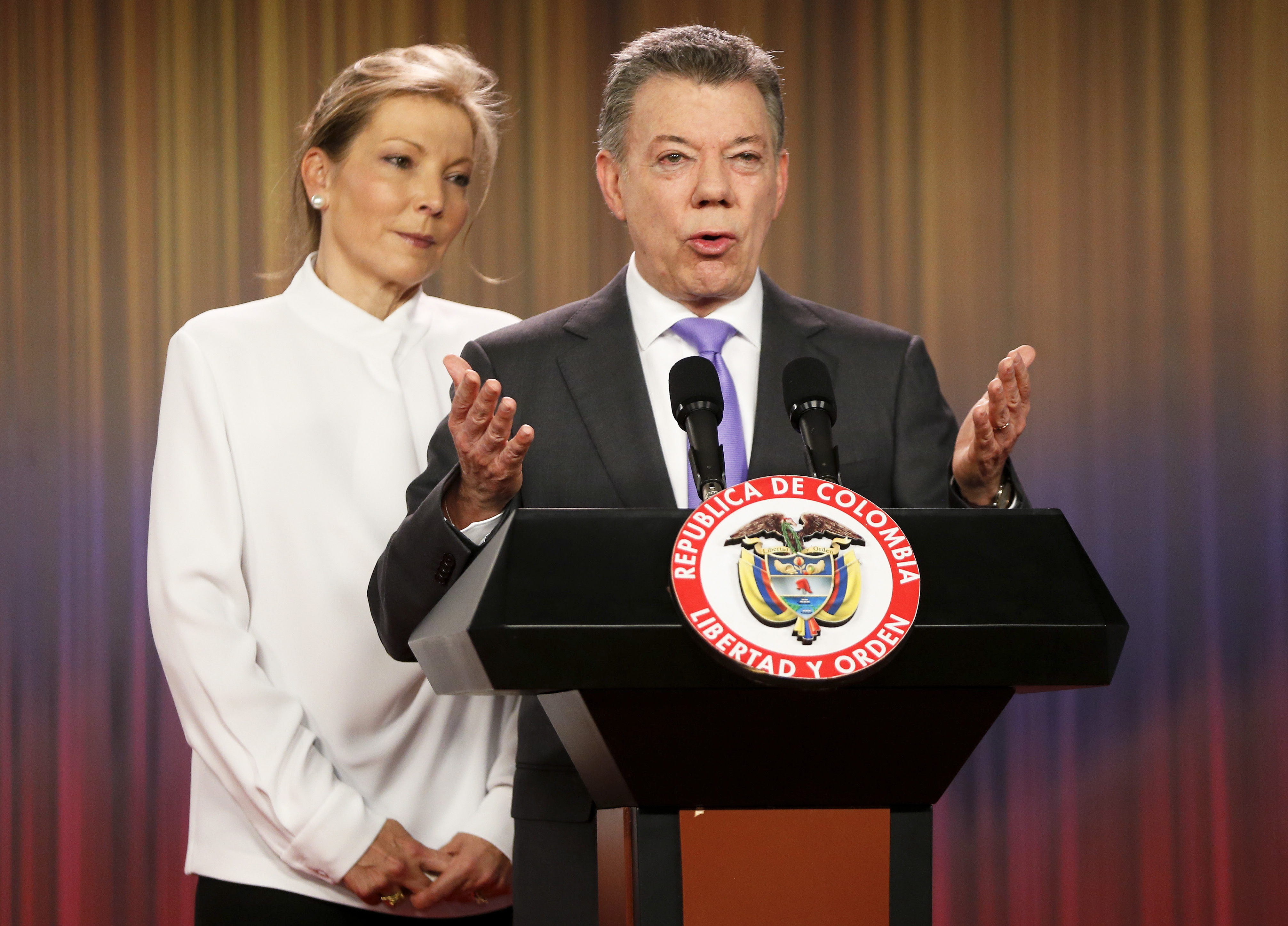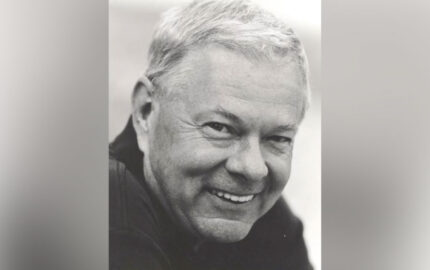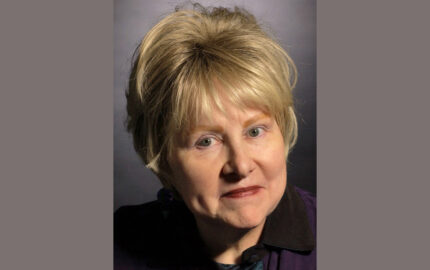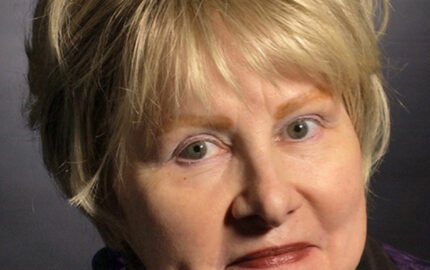Santos, who has overseen peace negotiations between the Colombian government and the FARC rebels, was a 1988 Nieman Fellow. Santos’ Nieman classmates, Rosental Alves, now the director of Knight Center for Journalism in the Americas at the University of Texas at Austin and Eugene Robinson, Pulitzer Prize-winning columnist at The Washington Post offered their reflections on their time with Santos here in Cambridge and beyond. Andres Cavelier, NF '08 and a Colombian journalist who worked with Santos at El Tiempo, also shared his thoughts. Here are some of the highlights of our conversations with Alves, Robinson, and Cavelier, lightly edited and condensed.
Alves on his reaction to Santos winning the Nobel:
I was delighted to see that. I had already seen some cartoons in Colombia mocking him, insinuating that he was doing all this because he wanted the peace prize — you lost your Nobel hahaha—which was part of the campaign by Colombian demagogues, especially his political adversary Alvaro Uribe, who used social media, in fact. He [Uribe] invested a lot in social media with lies, myths, and half truths. That led to the success of the "No" in the referendum on Sunday. I mean, this is pretty significant. Especially in light of what happened with the referendum. I'm very happy. I think it’s good for Colombia. I think it’s very fair because Juan Manuel has had an obsession for working toward this in a country where he knew that this is a very complex issue. He knew he would face fierce opposition, and that the peace would be used as a political tool, as it was. I think he had tremendous courage to take that path. For us, outside, it seems obvious, right? You have an endless war of more than 50 years, and it’s obvious that you should work for peace, but it's not the case. It's a very complex situation.
Alves on what it was like to be Santos’ classmate at Harvard:
In my 1988 Nieman class there were three people from Latin America and because of that affinity we became very good friends, and I became very good friends with Juan Manuel and his new wife at that point. So there was some affinity between me, Juan Manuel, and Eduardo Ulibarri, from Costa Rica. We had a very good relationship.
After the Nieman year, I went to Colombia a few times as a correspondent covering violence there and Juan Manuel was the kind of managing editor, the sub director of El Tiempo, the newspaper that used to belong to his family, now it’s not anymore. He was very helpful with me.
Alves on meeting with Santos in Colombia:
Recently, I saw him a few times. I visited him in the presidential palace after the University of Texas here acquired the archives of Gabriel Garcia Marquez. Initially, there was a negative reaction in Colombia for why the family sent it to an American university as opposed to a national archive in Colombia. I went to talk to him to explain that. He was very receptive.
The last time I saw him, I ran into him in the streets of Cartagena, which was almost like the magical realism of Garcia Marquez. I went out of a restaurant, and he was walking in the streets on his way to his car, but instead of going to his car with his family, he was talking with people. It was late on a Saturday night and even people who were not approaching him, he was approaching them. It was very funny. We had a little chat in the streets of Cartagena. Yes, we kept contact.
Alves on looking back to the Nieman year:
First of all, he was different from us, from the rest of the class because he was coming from a rich family, owner of a newspaper, while all of the others were working journalists. He was a journalist, but somehow he was different from us. Sometimes we joked this guy one day will become president of Colombia. It was kind of the class joke. A couple of decades later, sure enough he was and is the president of Colombia. I told him this when we met in the longer visit that I had in the presidential office there, and of course he laughed.
What I remember is that most of his classes were from the business school. He really connected with [Harvard Business School] and the Kennedy School. He took the fellowship very seriously, and in a very dedicated way.
In general, he was very well integrated with the group, although he was very serious and had an attitude that stood out of the more relaxed crowd of working journalists.
I have seen throughout the years many times he mentioned the Nieman as the best year of his life. When I was in the presidential palace with him he repeated that, and he has a very fond remembrance of the Nieman year.
I agree with him that it's a very valuable program. I was very happy when he paid homage to another Nieman Fellow who was under tremendous attack in Colombia. He was barely allowed to come to the Nieman: Hollman Morris. When Hollman was selected to be a Nieman, the American not only denied a visa for him to come but justified the denial with a provision of the Patriot Act. In a very dangerous country the American government did the stupid thing of marking him as a terrorist because of his journalistic contacts with the FARC. Of course, the Nieman Foundation and, I was secondarily involved, made a very strong campaign for the American government to correct that, which was eventually done, but not without a lot of pressure.
Later on, and there is a video that I'm sure you can find on the web, where he is at a public conference about journalists and the peace process and the compensation to victims of the war. He took advantage of that and paid homage to Hollman Morris, recognizing him as a great journalist and repeating that the Nieman was the best year of his life. That talk made Hollman cry in that video, and you can see he's so moved, sobbing. It's very interesting. Hollman and Juan Manuel are not friends, they’re not in the same party or anything like that. Hollman is now a politician, too. He is a city councilor in Bogota.
***
Robinson offered reflections on Santos in an e-mail today:
Juan Manuel became a great friend during our year at Harvard, and our friendship continued uninterrupted right after the Nieman year when he went back to El Tiempo and I went to Buenos Aires as the [The Washington] Post’s South America correspondent. This was the era of the Colombian drug lords, so I had to go to Bogota a lot. Juan Manuel had some executive position at the paper. On one of my first trips to Colombia, he arranged a lunch in the countryside for me and invited all the young movers and shakers in Colombian politics, along with the U.S. ambassador. It was one-stop shopping—in one trip I knew all the important up-and-comers from all sides of the political spectrum. (Present, it turned out, were two future presidents, a future defense minister, a future mayor of Bogota and a future Colombian ambassador to the U.S.). I remember one subsequent trip when I arrived having had no luck in setting up interviews in advance. I mentioned my bad luck to Juan Manuel, and within two hours he had arranged a full schedule for me, somehow getting me in to see the head of the national police, who at the time wasn’t seeing anybody.
I recall that his family was not thrilled when he decided to go into politics; they were like the Sulzbergers or the Grahams in their commitment to high journalistic principles, and did not want their objectivity to be compromised. It must have been hard to argue with his success, however, and I believe the family ultimately sold the paper. I could go on and on about his achievement in negotiating peace with the FARC. I can only imagine his disappointment at the vote rejecting the agreement, and my guess is that his reaction to the Nobel will not be one of personal pride, but of hope that maybe it can get the peace process underway again.
***
2008 Nieman Fellow Andres Cavelier, a fellow Colombian, expressed a sense of pride:
As a Colombian, I am honored that a Colombian journalist has won the Nobel Peace Prize. Only two Colombians have won a Nobel prize, Gabriel Garcia Marquez (Literature) and now Santos. And they both worked early in their careers as journalists, which makes me extremely proud for Colombian journalism.
I met Juan Manuel Santos when I started working as a sportswriter for El Tiempo in 1991. At the time, Juan Manuel was columnist and Managing Editor of El Tiempo, owned back then by his family. As I remember, his column dealt mostly about economic issues but politics was clearly on his mind. Later that year he left journalism to become Minister of Foreign Trade under Presidente Cesar Gaviria. At the time, I remember, he shaved his beard, probably an early move to become more appealing to future voters.
Since leaving El Tiempo, Santos never went back to journalism. Ironically, other members of his family have followed his path: his brother Enrique Santos Calderón, one of Colombia's best columnists of all times, has now retired and works closely advising Juan Manuel in the peace process; brother-in-law Francisco Santos, also a journalist and [1992] Nieman Fellow, left El Tiempo in 2002 to become VP of President Alvaro Uribe and is now a fierce critic of Juan Manuel's peace efforts.
I last saw Juan Manuel on Dec. 31, 2015 near Bogotá. I talked briefly with him and [he] appeared to be extremely focused on bringing the peace process to an end. I just didn't think we would get here so quickly—although it is still in the works.



